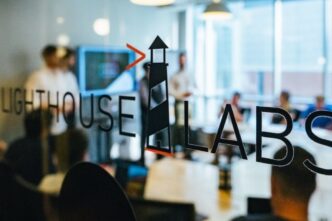Top US artificial intelligence companies are sounding the alarm over China’s growing influence in the global AI race, raising serious concerns about the country’s rapid advancements and aggressive pricing strategies. In recent submissions to the US government’s AI Action Plan, OpenAI, Google, and Anthropic warn that Chinese AI models like DeepSeek R1 are quickly closing the technological gap — a development they view as both a competitive and national security threat.
China’s Rapid AI Gains Spark Concern in the US
According to the submissions filed in March 2025, China’s state-backed AI models are becoming more sophisticated and affordable, putting mounting pressure on American firms. OpenAI highlighted DeepSeek R1 as a prime example — describing it as “state-subsidized, state-controlled, and freely available”, which could give China a powerful edge in shaping global AI development.
Drawing parallels to Chinese tech giant Huawei, OpenAI warned that Beijing’s strict regulations could force DeepSeek to compromise sensitive US systems or hand over user data, creating vulnerabilities in critical infrastructure. The risk of data privacy breaches also looms large, especially if Chinese models are integrated into US applications.
Compounding these concerns, China’s AI competition isn’t limited to DeepSeek. Baidu’s Ernie models, including Ernie X1 and Ernie 4.5, are emerging as serious challengers. Baidu claims Ernie X1 performs on par with DeepSeek R1 but costs half the price. More strikingly, Ernie 4.5 is priced at just 1% of OpenAI’s GPT-4.5 costs, while outperforming it in several benchmarks.
Price is becoming a powerful weapon in this competition. According to Bernstein Research, DeepSeek’s V3 and R1 models are offered at rates 20 to 40 times cheaper than equivalent US models — a strategy that could force American AI firms to rethink their business models to stay competitive.
Baidu is also accelerating adoption by open-sourcing its models. CEO Robin Li recently announced plans to release the Ernie 4.5 series to the public starting June 30, following the playbook used by DeepSeek to fuel global adoption.
“Open-sourcing top models helps accelerate adoption. That’s a key lesson from DeepSeek,” Li stated in February.
Early feedback has been positive. Venture partner Alvin Foo shared on social media that he found Baidu’s model performance “impressive” after testing it for hours — a sign that Chinese models are not only cheaper but also closing the performance gap.
The US tech giants warn that this rising competition poses serious security and economic risks. OpenAI emphasized that Chinese government control over AI models like DeepSeek could enable manipulation of systems or infrastructure, posing a direct threat to US interests.
Anthropic raised additional concerns around biosecurity risks, disclosing that its own Claude 3.7 Sonnet model demonstrated capabilities in biological weapon development — underlining the dual-use dangers of advanced AI systems.
The company also took aim at current US export controls on AI chips. Although Nvidia’s H20 chips comply with restrictions, Anthropic warned they still perform well enough to support powerful AI training, particularly in text generation — a critical feature for reinforcement learning. The company urged Washington to tighten controls to prevent China from gaining an edge through hardware advantages.
Google, meanwhile, urged caution — acknowledging the risks but warning against over-regulation that could stifle US innovation. “Overly broad AI export rules might harm American businesses more than our competitors,” the company stated. Instead, Google advocated for targeted controls to protect national security without limiting cloud providers and other domestic industries.
To stay competitive, all three companies pressed the US government for greater infrastructure investment and policy support. Anthropic predicted that by 2027, training a single cutting-edge AI model could require up to five gigawatts of power — enough to run a small city.
The company proposed setting a national target to build 50 gigawatts of AI-dedicated power capacity by 2027, along with streamlined regulations to accelerate power transmission projects.
OpenAI framed the AI competition as a contest between democratic and authoritarian systems. The company argued that supporting free-market models will drive better global outcomes while safeguarding America’s technological leadership.
Google pushed for more federal AI research funding, better access to government contracts, and more flexible procurement rules to accelerate AI deployment in federal agencies.
The three companies also urged Washington to adopt a unified federal strategy for AI regulation. OpenAI proposed placing the Department of Commerce in charge to avoid a fragmented state-by-state regulatory patchwork that could push AI development offshore.
They supported a tiered export control system — ensuring democratic nations maintain access to US-developed AI while restricting it in authoritarian states.
Anthropic called for stricter controls on AI hardware and training datasets, warning that even incremental gains in model performance could hand China a strategic advantage.
Google also pressed for clearer copyright and intellectual property protections, warning that restrictive interpretations could hamper US developers while giving Chinese firms room to maneuver.
All three companies agreed that the US must act swiftly to secure its AI leadership. This includes:
- Faster government AI adoption
- Streamlined testing and procurement processes
- Investment in power infrastructure
- Smart, targeted regulation that balances national security with innovation
OpenAI summed it up bluntly: “This is not just a race in technology — it’s a race in values.”
As China’s AI ambitions grow, the pressure is now on Washington to craft policies that protect both the country’s technological edge and democratic principles.













